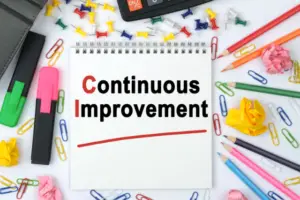This article contain information on 10 roles of the school Assessment Team

Introduction
Have you ever imagined what the educational system would have been globally without Assessment teams in schools [2]? Probably by now, every school would have had their unique curriculum and poor educational standard. However, with assessment teams in schools, uniformity is certain.
Assessment teams in schools are composed of educators, psychologists, administrators, counselors, speech-language pathologists, occupational therapists, and other specialists who work collaboratively to design, implement, and evaluate assessment strategies and practices.
They play a crucial role in the functioning and operation of schools, ensuring that students receive a quality education and that educators have the information they need to make informed decisions. In this we will look at the various roles and responsibilities of assessment teams in schools, highlighting their significance in promoting student learning and achievement.
10 Roles of the School Assessment Team
Below are the unique roles of assessment teams in a school:
1. Developing Assessment Policies and Procedures
One of the key roles of assessment teams in schools is the development of assessment policies and procedures. These policies show the guidelines and principles that govern how assessments are conducted within the school. Assessment teams ensure that these policies are consistent with educational standards, legal requirements, and the school’s mission and vision. By establishing clear policies, assessment teams provide a foundation for fair, reliable, and valid assessments.
2. Designing and Selecting Assessment Tools
Assessment teams are also responsible for choosing or designing assessment tools that align with the curriculum and instructional goals. This involves selecting appropriate standardized tests, creating rubrics [1] for classroom assessments, or designing performance tasks that measure specific learning outcomes. The team’s expertise ensures that the assessments are both valid and reliable. In other words, the team ensures that the tools accurately measure what they intend to measure and yield consistent results over time.
3. Coordinating Assessments Implementation
Once assessment tools are selected or designed, assessment teams coordinate their implementation. This includes scheduling assessments, ensuring test security and integrity, and providing training for educators involved in administering the assessments. Assessment teams also monitor the testing environment to minimize distractions and ensure fairness for all students.
4. Analyzing Assessment Data as a Role of the School Assessment Team

Collecting assessment data is just secondary role, assessment teams play a crucial role in analyzing this data. They interpret the results to identify trends, strengths, and areas of improvement. So, data analysis allows educators to gain insights into student performance, identify areas where additional support may be needed, and tailor instruction to meet individual student needs.
5. Providing Feedback to Teachers

Assessment teams also work closely with teachers to provide timely and meaningful feedback on assessment results. This feedback helps educators understand how well their students are progressing and where adjustments to their instructional strategies may be necessary. By fostering a culture of data-driven decision-making, assessment teams empower teachers to continuously improve their teaching methods.
6. Supporting Individualized Learning Plans
It is no longer news that every student has a unique learning method. Therefore, in cases where students have unique learning needs or face academic challenges, assessment teams play a vital role in developing and implementing individualized learning plans (ILPs). These plans outline specific interventions, accommodations, or modifications that will help students succeed academically. Assessment teams ensure that ILPs are tailored to each student’s needs and monitor their progress over time.
7. Assessing Program Effectiveness as a Role of the School Assessment Team
Assessment teams are not only concerned with student performance but also with the effectiveness of educational programs and initiatives. They conduct program evaluations to determine whether specific interventions or curriculum changes are producing the desired outcomes. This information informs decisions about the allocation of resources and whether adjustments are needed to enhance program effectiveness. This is why curriculums are ever changing.
8. Ensuring Accountability as a Role of the School Assessment Team
Assessment teams contribute to school accountability by tracking progress toward educational goals and meeting reporting requirements. They compile data on student achievement, participation rates, and other relevant metrics to demonstrate the school’s performance to various stakeholders, including parents, policymakers, and accreditation agencies.
9. Promoting Fairness and Equity
Assessment teams are instrumental in promoting fairness and equity in education. They are responsible for addressing issues related to bias in assessment instruments, ensuring that assessments are culturally responsive, and advocating for accommodations for students with disabilities or language barriers. Assessment teams strive to create a level playing field where all students have an equal opportunity to demonstrate their knowledge and skills rather than being stereotyped.
10. Continuous Improvement

One of the most important roles of assessment teams in schools is to drive continuous improvement in the educational process. They use assessment data and feedback to identify areas of improvement at the school and classroom levels. This might involve revising curriculum, adjusting teaching strategies, or providing professional development opportunities for educators. Assessment teams are at the forefront of fostering a culture of learning and growth within the school community.
Conclusion
Assessment teams in schools play a series of roles that are instrumental in promoting student learning, ensuring accountability, and driving continuous improvement in the educational process. From developing assessment policies to analyzing data and supporting individualized learning, these teams are at the heart of educational assessment. Their expertise and collaboration are essential in helping educators make informed decisions, tailor instruction to student needs, and create a fair and unbiased learning environment.
Above all, assessment teams are essential partners in the pursuit of educational excellence as their primary goal is to gather information about student performance and progress, inform instructional decisions, and improve the overall educational experience for students. When you think there is a whole lot of improvement on educational processes, the first people to give the flowers are the assessment team.
References
[1] “No Title.” Google.com, https://www.google.com/url?sa=t&source=web&rct=j&opi=89978449&url=https://www.niu.edu/citl/resources/guides/instructional-guide/rubrics-for-assessment.shtml&ved=2ahUKEwjHi6mPjPSBAxXKOuwKHYNnANIQFnoECDAQAQ&usg=AOvVaw0OoZFuqWA5iL2eadJSMt6n.
[2] Rjwala, Written By. “What Is the Role of the School Assessment Team?” || Rjwala ||, 21 Sept. 2023, https://www.rjwala.com/2023/09/what-is-role-of-school-assessment-team.html?m=1.
Don’t miss out on current updates, kindly like us on Facebook & follow us on Follow @EAfinder OR leave a comment below for further inquiries






